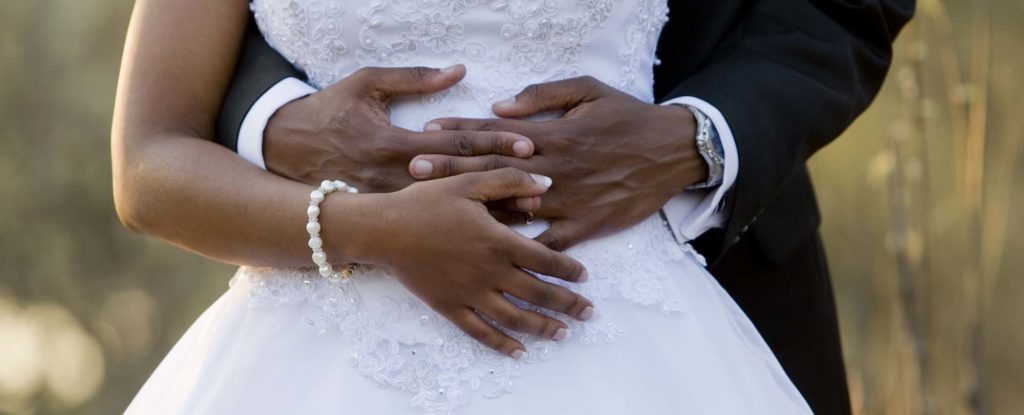I have friends who admit to have dreamt and planned their weddings from dress to cake from as young as they can remember. They would always get shocked at how I have no problem with not planning mine.
I would always retort dismissively: ‘I am nobody’s bride.’ I realised as I grew up that what I really meant was that I am not a white, poufy-dress bride and I don’t say it with a tiny voice anymore. And it appears that I am not the only one.
I have no time for men proposing on bended knee, with expensive diamonds and all the events that lead to the altar.
A young Kenyan couple was recently reported to have foregone the expensive white wedding – and opted for the USD $1 budget option – because they couldn’t afford it. Case in point: one is not less married without a white wedding. A white wedding is unattainable to most and risks being poorly executed due to limited budgets.
Unable to raise $300 the Kenyan couple spent $1 on two wedding rings https://t.co/g01xjkcump — BBC News Africa (@BBCAfrica) January 30, 2017
In truth, I have always questioned the origin of the whole event starting with the proposal. I have no time for men proposing on bended knee, with expensive diamonds and all the events that lead to the altar. It often seem to have priority over our traditional wedding ceremonies, which is saddens me. Weddings have now become a show, which comes at a price.
The same friends who have put together scrapbooks of white dresses, shoes and hairstyles also have put together rings they like; how and where the man must propose, all in much defined detail… no pressure on the men really. It is said to be a dream to get elaborate/grand gestures and for a man to get on one knee and pop the question.
Disclaimer; I am not disapproving of white weddings, to each their own. All I have ever done is question them, in efforts to understand or otherwise.
I always ask why all the elaborate dreams and preparation. The answer is almost always the same; because it’s how things should be. A man should kneel at a woman’s feet and surrender all the power to her, to ask for her hand in marriage.
Should he really, why?
In the traditional sense, in the culture I was raised, when a man gets to that stage of life, after much deliberation with the partner, his family goes to ask for a woman’s hand in marriage from her family on his behalf. Then not much is agreed upon until the bride price (bogadi) is set and paid for. This is a tradition that has always happened since the pre-colonial era; it is one that I think is sacred or should be regarded so.
What happens during the process is commonly known as negotiations (merero), where the two families get acquainted beyond just negotiating the bride price. The woman’s family dictates the nature of this process, the duration, where it takes place and how it takes place. The man’s family is inclined to concede to almost every demand.
It is now regarded by most as a transaction, making money the centre of negotiations.
This process on its own is more than just a five-minute gesture of surrendered ‘power’. It’s a complete, months-long process of a man kneeling at the feet of your entire family, pleading and jumping through every hoop to marry his woman. It’s a gesture of respect and an endurance gauge of sorts: a test of commitment.
The downside of this process is that it has now been taken out of context. It is now regarded by most as a transaction, making money the centre of negotiations. In most cases the bride’s family asks for ludicrous amounts of money for lobola [the bride price] despite the fact that it is supposed to be given in the form of cows.
Some of these expectations reinforce gender stereotypes taking us many steps back from equal rights for all.
The ludicrous demands lead to the woman’s family having unrealistic expectations of the groom and his family. Some of these expectations reinforce gender stereotypes taking us many steps back from equal rights for all.
This ceremony not supposed to only build the man’s character as a husband but also gives the fiancee and her family an idea of the kind of family she is getting married into. The same goes for the groom’s perspective. It prepares the couple for their life as a unit, and determines the longevity of their married life, its stature and value. But it has become so much about who puts up a better front that the important details gets overlooked. It has become just as bad as an overblown white wedding.
The beauty and true meaning of this process only remains relevant to a very small number of African cultures that practice it properly. Those who still revel in its value, sturdiness and teachings reap the benefits.
Photos by Leungo Mphathi.
